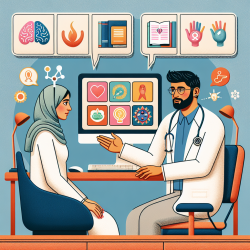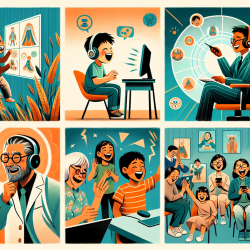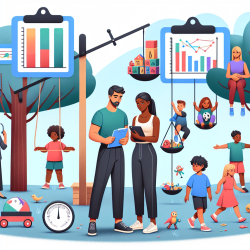Introduction
Sexuality is an integral part of human life, yet it remains a challenging topic for individuals with cerebral palsy (CP) and their healthcare providers. The study "Exploring the sexual experiences and challenges of individuals with cerebral palsy" by Newell et al. (2024) sheds light on the sexual experiences, challenges, and the need for tailored sex education for individuals with CP. This blog aims to help practitioners enhance their skills by implementing the research outcomes or encouraging further research in this domain.
Understanding the Challenges
The study surveyed 40 individuals with CP, revealing that while many have sexual experiences, they face significant physical challenges, such as muscle spasms, positioning difficulties, and pain. Moreover, only 10% received sex education tailored for people with disabilities, highlighting a critical gap in resources and support.
Key Findings
- 45% of respondents were partnered, and 60% had past sexual experiences.
- 47.5% were currently sexually active, and 80% had masturbated.
- 45.8% believed sexual experiences positively impacted their self-esteem.
- School (72.5%) and the internet (35%) were the most common sources of sex education.
Implications for Practitioners
For practitioners, understanding these challenges and experiences is crucial. Here are some ways to enhance your practice:
- Initiate Conversations: Encourage open discussions about sexuality and intimacy. Patients may feel embarrassed or hesitant, so creating a safe space is essential.
- Provide Tailored Education: Develop and offer sex education programs that address the specific needs of individuals with CP. This can significantly enhance their quality of life and self-esteem.
- Address Physical Challenges: Collaborate with physical therapists to explore positioning aids and techniques that can alleviate physical discomfort during intimate activities.
- Encourage Further Research: The study highlights the need for more comprehensive research in this area. Practitioners can contribute by documenting patient experiences and sharing insights with the broader medical community.
Encouraging Further Research
While the study provides valuable insights, it also underscores the need for further research to address the limitations and expand our understanding of sexuality in individuals with CP. Practitioners can play a pivotal role by advocating for more inclusive studies and contributing to ongoing research efforts.
Conclusion
Addressing sexuality in individuals with CP is not just about improving sexual health but enhancing overall quality of life. By implementing the findings from this study and encouraging further research, practitioners can make a significant difference in the lives of their patients.
To read the original research paper, please follow this link: Exploring the sexual experiences and challenges of individuals with cerebral palsy.










